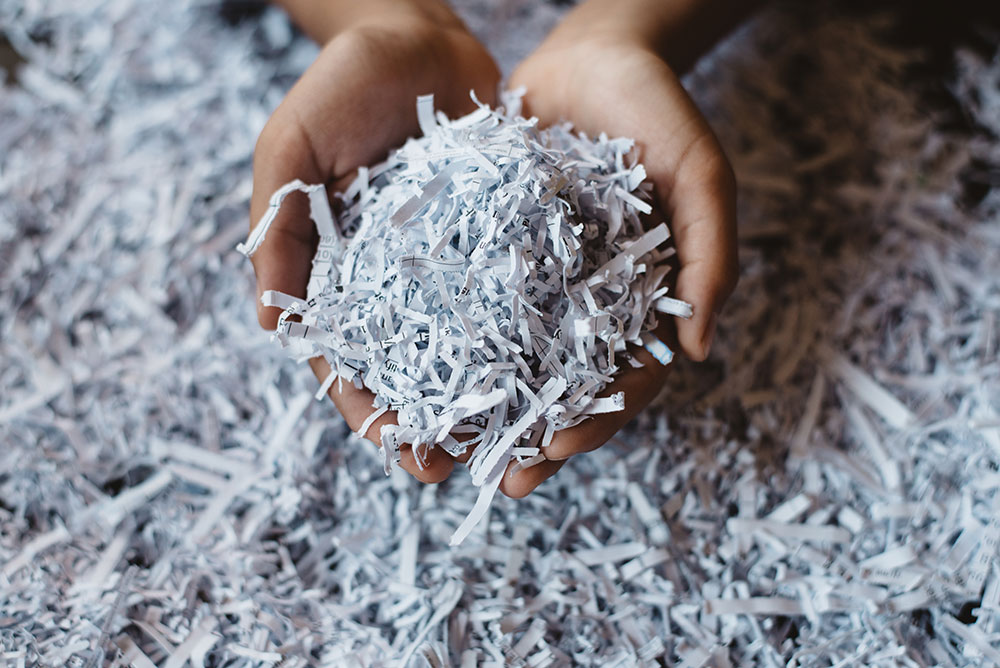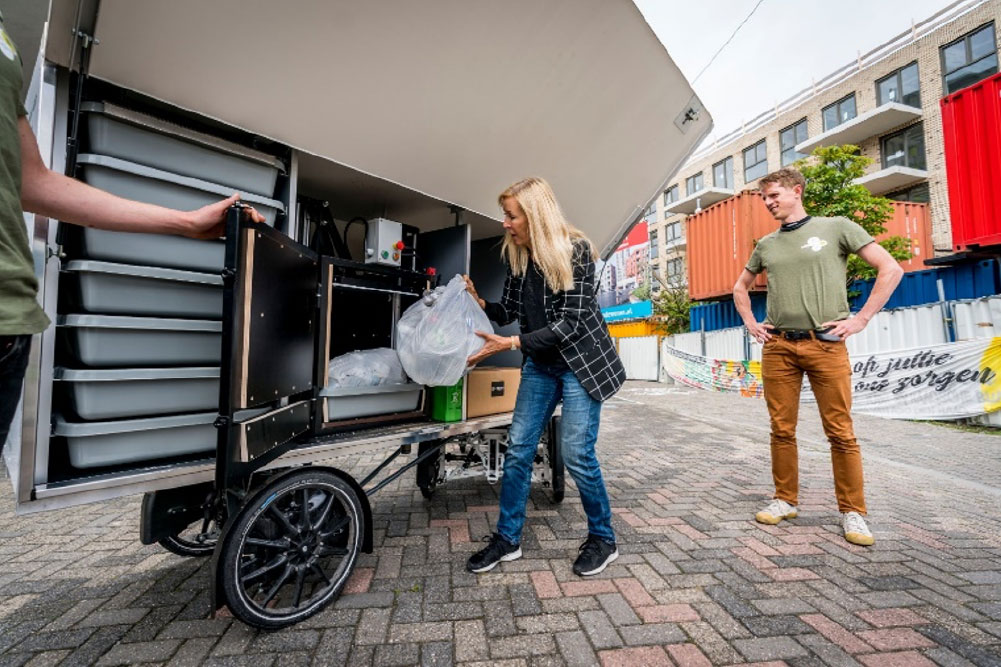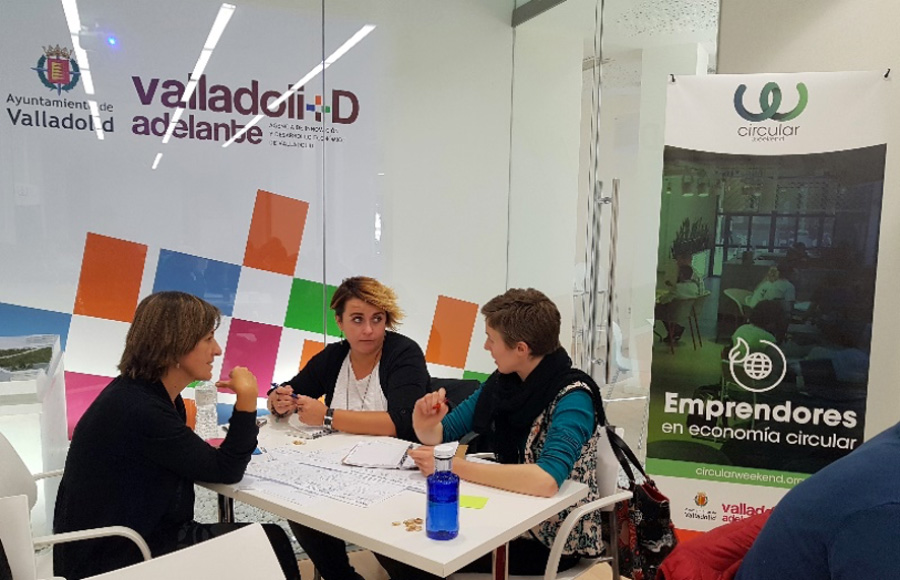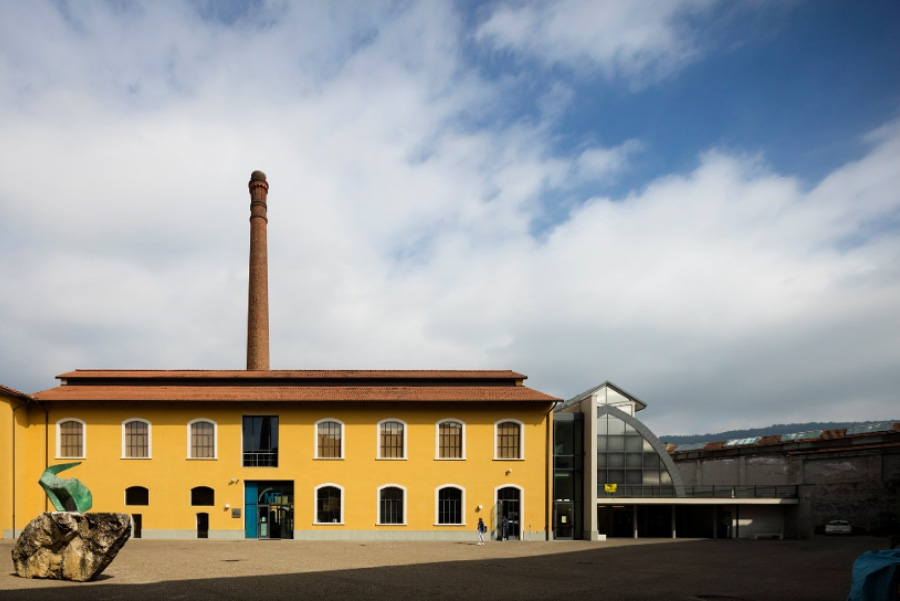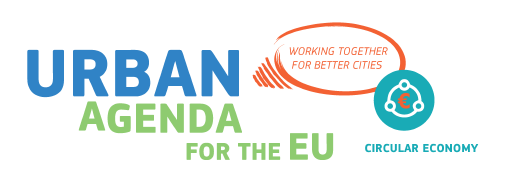Value recovery
Value recovery models focus on the application of recycle or recover strategies in a products’ after-use phase. Products and materials are re-processed to minimise wastage and resource use.
For these models, the development of reverse logistics is essential. Reverse logistics enable the return of products and materials from the consumption phase to production. It is always aimed to recover and recycle the materials at their highest value possible. However, it should be considered that for some materials, recycling involves a loss of quality and for products also a loss of design, and technical- and energy inputs. A distinction can be made between:1
- Downcycling: the output materials and products show lower quality and or reduced functionality than the original materials and products
- Upcycling: waste and by-products are transformed into new materials or products of higher quality and better environmental value than the original materials or products
Examples of value recovery processes are:
- Recovery of materials and chemicals from waste, residues and by-products
- Recovery of bio-resources, chemicals and nutrients from bio-waste, bio-residues, and wastewater sludge
- Recovery of energy from residual biomass, bio-waste, bio-residues, and organic sludge
- Recovery of waste heat
- Reuse of treated wastewater
Value recovery strategies in cities
Currently, great value is lost in cities as they are responsible for 50% of global waste generation. Separate collection of recyclable materials and bio-waste, and treatment of these streams in recycling and recovery plants, are ways to recover value from what otherwise becomes waste.
For the efficiency of recovery and recycling processes, the characteristics and quality of the waste input streams are important factors. Since this is impacted by the way in which waste is separated and collected, value recovery initiatives often require cooperation by waste generators separating their wastes at source.
Recently, a network of eleven European cities has joined forces in the UrbReC-project ![]() to develop the next generation urban resource centres aligned with the priority of the waste hierarchy. In this way, urban resource centres can promote the circular economy and invite citizens and (new) businesses to co-create new ways of closing resource loops at the local level in an economically sustainable way.
to develop the next generation urban resource centres aligned with the priority of the waste hierarchy. In this way, urban resource centres can promote the circular economy and invite citizens and (new) businesses to co-create new ways of closing resource loops at the local level in an economically sustainable way.
Funding your value recovery project
Do you have an innovative idea on bio-waste valorisation? Do you want to demonstrate your plastics recycling plant at full scale? Do you want to conduct research on nutrients recovery from sewage wastewater or from slaughterhouse waste? Chances are you are eligible for different types of financial support.
Generally, financial instruments are available for circular initiatives in all stages of the innovation or project development process; from basic research to commercial demonstration and scale-up. Learn more about the different funding types and their applicability here.
